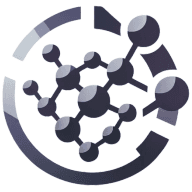7 Business Opportunities for Nanotechnology in the Coming Decade
Nanotechnology is poised to revolutionize multiple industries in the coming decade, offering unprecedented opportunities for innovation and growth. From precision medicine to sustainable materials, this cutting-edge field is set to transform the way we live and work. Drawing on insights from leading experts, this article explores seven key areas where nanotechnology will make a significant impact in the near future.
- Nanotech Revolutionizes Precision Medicine
- Sustainable Materials Drive Nanotech Growth
- Smart Agriculture Boosts Crop Yields
- Quantum Computing Transforms Industries
- Nano-Filters Tackle Global Water Crisis
- Aerospace Advances with Nanotech Materials
- Smart Fabrics Reshape Textile Industry
Nanotech Revolutionizes Precision Medicine
If I had to wager on the one area in which nanotechnology would have the biggest impact in the next decade, I would place it on healthcare - and most particularly the way we administer and personalize treatment. Think of therapies that home in only on the problem cells and spare everything else. That's not science fiction anymore, either. It's real, and it's starting to enter the mainstream.
The business opportunities here are enormous. Startups that can somehow cross nanotechnology with AI modeling or that can partner with biotech firms to speed up testing are going to have a serious edge. What's fueling this momentum? Partly because patients are demanding precision medicine, partly because big investments go into R&D, and partly because smarter treatments save costs and complications. We're at the precipice of something big - and the smart founders are already building for it.

Sustainable Materials Drive Nanotech Growth
Of all the opportunities nanotechnology offers, the biggest one I see over the next decade is in sustainable materials and energy storage. The world is pushing hard for cleaner energy and better use of resources. Nanotechnology can help build stronger, longer-lasting materials and make solar panels and batteries much more efficient. Years ago, I led a technology shift at Parachute where we moved to greener, more energy-efficient servers. Seeing firsthand how small changes in technology can lead to big environmental gains makes me confident that nanotech will be a game-changer.
Several factors will push this opportunity forward. First, more people are concerned about the environment than ever before. Climate change is no longer an idea for the future—it's here. Governments are also stepping up with strict rules and offering incentives for companies that invest in cleaner tech. I've seen the power of incentives firsthand when we helped a client secure grants for upgrading their IT infrastructure to meet new compliance standards. It made a massive difference in their bottom line and their commitment to greener operations.
For anyone looking to enter this space, my advice is to focus on where the technology meets real-world needs. Think about solar energy, better batteries for electric vehicles, and recyclable materials. Watch for funding opportunities and partner with research centers pushing nanotechnology forward. Businesses that stay close to the science and focus on solving real problems will find themselves in the strongest position to succeed.

Smart Agriculture Boosts Crop Yields
Nanotechnology in smart agriculture presents a promising opportunity for boosting crop yields and enhancing protection. Tiny sensors and smart delivery systems can monitor soil conditions and plant health in real-time. These innovations allow for precise application of water, fertilizers, and pesticides, reducing waste and environmental impact.
Nano-coatings on seeds can improve germination rates and protect against pests. This technology has the potential to revolutionize farming practices, especially in areas with challenging growing conditions. Farmers and agricultural businesses should explore these nanotechnology solutions to improve their crop production and sustainability.
Quantum Computing Transforms Industries
Quantum computing powered by nanotechnology offers unprecedented processing speeds that could transform various industries. Nanoscale components allow for the creation of more powerful and efficient quantum processors. These advanced computers can solve complex problems that are currently impossible for traditional systems.
The potential applications range from drug discovery to financial modeling and climate prediction. As this technology develops, it could lead to breakthroughs in artificial intelligence and data analysis. Businesses and research institutions should start preparing for the quantum computing revolution by identifying potential use cases and building necessary skills.
Nano-Filters Tackle Global Water Crisis
Nanotechnology in water purification presents a groundbreaking solution to the global clean water crisis. Nano-filters can remove contaminants, including bacteria, viruses, and heavy metals, more effectively than traditional methods. These advanced filtration systems require less energy and fewer chemicals, making them more environmentally friendly.
The technology can be scaled from household units to large municipal systems, improving access to clean water in both developed and developing regions. This innovation has the potential to significantly reduce water-borne diseases and improve overall public health. Water treatment facilities and aid organizations should consider implementing nano-filtration technology to provide cleaner, safer water to communities worldwide.
Aerospace Advances with Nanotech Materials
The aerospace industry stands to benefit greatly from nanotechnology-enhanced materials. These lightweight yet super-strong nanomaterials can revolutionize aircraft design and performance. By reducing the overall weight of aircraft, these materials can significantly improve fuel efficiency and reduce emissions.
Nanocomposites can also enhance the durability and lifespan of aircraft components, leading to reduced maintenance costs and improved safety. Additionally, nanomaterials with self-healing properties could address structural issues in real-time, further enhancing aircraft reliability. Aerospace companies should invest in research and development of these advanced materials to stay competitive in the evolving industry landscape.
Smart Fabrics Reshape Textile Industry
Nanotechnology is set to transform the textile industry with the development of smart fabrics. Self-cleaning textiles use nanoparticles to break down dirt and stains, reducing the need for frequent washing. Temperature-regulating fabrics incorporate phase-change materials at the nanoscale, helping wearers stay comfortable in varying conditions.
These innovations can lead to more sustainable and functional clothing options. Additionally, nanotech-enhanced textiles can offer improved durability, water resistance, and even health monitoring capabilities. Fashion brands and textile manufacturers should explore these nanotechnology applications to create innovative and high-performance products that meet evolving consumer demands.

